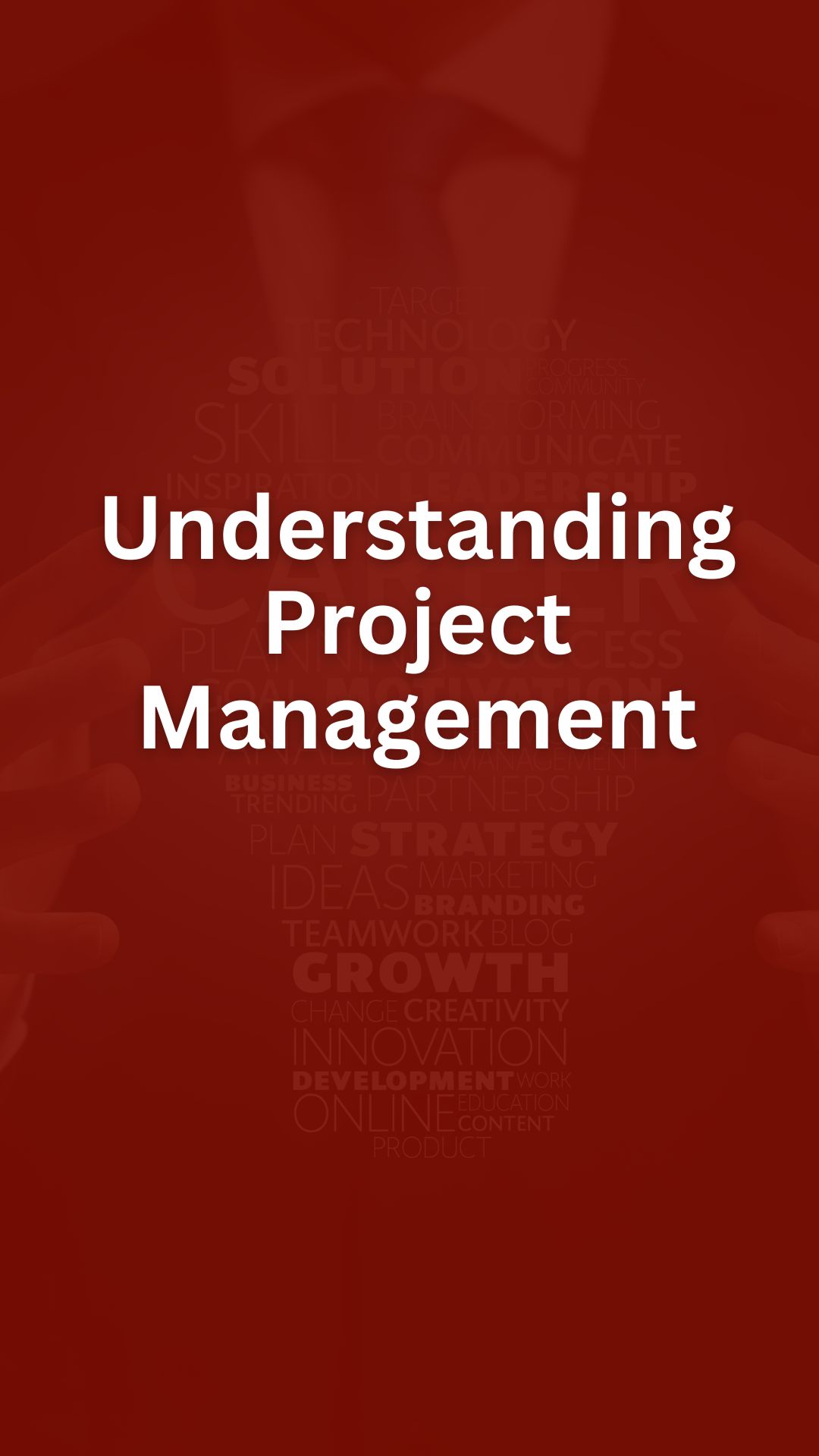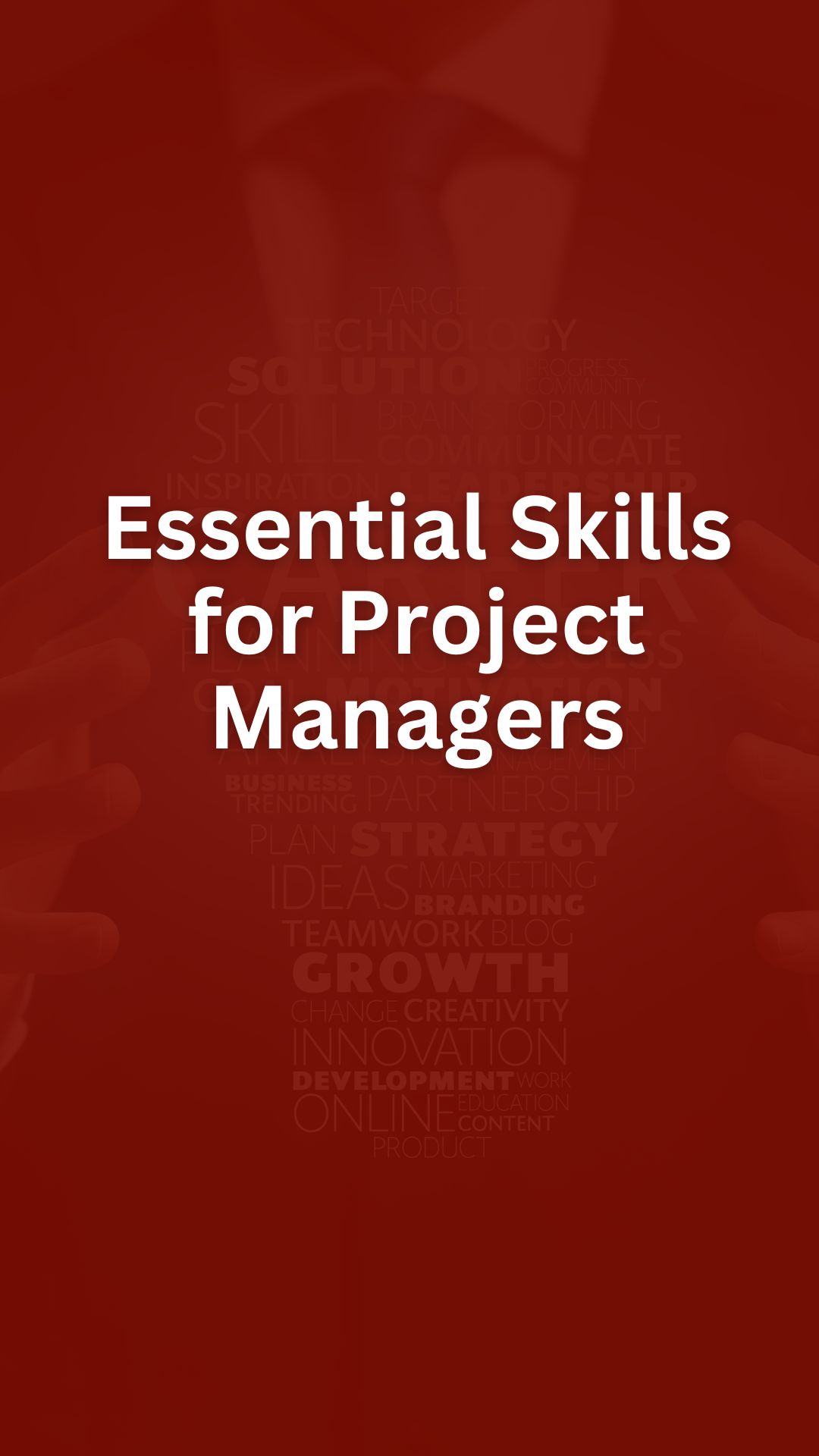Launching a career in project management can be an exciting journey.
To start, getting certified can provide you with the skills and credibility needed to succeed.
Certifications like the PMP (Project Management Professional) are highly respected in the industry and can set you apart from other candidates.
Another key step is gaining practical experience.
You can do this by volunteering for projects in your current role or through internships.
Hands-on experience is invaluable and teaches you how to handle real-world challenges.
Networking is also crucial.
Connecting with experienced project managers can provide you with insights and mentorship.
Attend industry events and join professional organizations to expand your network.
These relationships can lead to job opportunities and valuable advice that can help you grow in your career.

Understanding Project Management
Project management is all about planning, organizing, and managing resources to achieve specific goals. You play a key role in making sure everything runs smoothly from start to finish.
Key Concepts
1. Project: A temporary effort with a specific goal.
2. Scope: What the project will deliver.
3. Time: The schedule for completing the project.
4. Cost: The budget for the project.
5. Quality: How good the project’s outcomes are.
Important Skills
- Communication: You’ll need to talk clearly with your team and stakeholders.
- Organization: Keeping track of details is crucial.
- Problem-solving: Be ready to face challenges and find solutions quickly.
- Leadership: Guide your team to success by motivating and supporting them.
Tools to Use
| Tool | Purpose |
|---|---|
| Gantt Charts | Helps visualize the project timeline. |
| Trello | Manages tasks and team collaboration. |
| Microsoft Project | Offers extensive project planning and tracking features. |
Steps Involved
- Initiating: Define the project and get approval.
- Planning: Develop a detailed roadmap for the project.
- Executing: Carry out the project plan.
- Monitoring: Track progress and make necessary adjustments.
- Closing: Finalize all activities and evaluate project success.

Essential Skills for Project Managers
To be a successful project manager, you need a mix of technical and soft skills. These include leading a team, communicating clearly, managing time, handling risks, and budgeting effectively.
Leadership and Team Management
You need to be a strong leader to guide your team towards project goals. This means setting a clear vision and motivating everyone. Good leaders listen to their team members and provide feedback.
Team management involves resolving conflicts and making sure everyone works well together.
It’s important to recognize each person’s strengths and weaknesses.
By assigning tasks that fit their skills, you can boost performance and morale.
Communication
Clear communication is key in project management. You must communicate with team members, stakeholders, and clients.
Keeping everyone informed prevents misunderstandings and errors.
Effective communication includes writing reports, emails, and project updates.
Also, you need to run meetings efficiently.
Practice active listening and be open to feedback.
Good communication helps build trust and keeps the project moving forward.
Time Management
Managing time is crucial for meeting deadlines.
You’ll need to prioritize tasks and schedule them efficiently.
Breaking down the project into smaller tasks can help.
Use tools like Gantt charts or project management software.
Setting realistic deadlines ensures you don’t overpromise.
It’s also important to track progress regularly.
This lets you adjust schedules if unexpected issues arise.
Good time management keeps the project on track and reduces stress.
Risk Management
Risks are part of any project.
Identifying potential problems early helps you prepare.
Make a risk management plan that addresses these issues and how you’ll handle them.
You need to monitor risks throughout the project.
If a risk becomes reality, having a plan in place can minimize its impact.
Being proactive about risk management ensures smoother project execution and fewer surprises.
Budgeting
Managing the project budget is vital.
You need to create a budget plan that includes all expected costs.
Tracking expenses regularly helps you stay within budget.
Adjusting the budget as needed ensures you have the funds to complete the project.
Communicate with your team and stakeholders about any changes.
Effective budgeting prevents financial issues and keeps the project financially healthy.

Education and Certifications
Getting the right education and certifications can boost your place in project management. You need a mix of courses and certifications to stand out.
Project Management Courses
Taking project management courses can give you essential skills.
Look for classes covering scheduling, budgeting, and resource allocation.
Consider online platforms like Coursera or edX.
These often offer courses from top universities and organizations. You might also find local community colleges helpful.
Some useful subjects to look into:
- Introduction to Project Management
- Risk Management
- Lean Project Management
These courses typically take a few weeks to complete. They often include practical projects to help you apply what you learn.
Certification Programs
Certifications can validate your skills and knowledge. Many employers look for certified project managers.
Popular certifications include:
- Project Management Professional (PMP)
- Certified Associate in Project Management (CAPM)
- PRINCE2
To get certified, you usually need some experience and must pass an exam.
For PMP, you need 3 years of experience and 35 hours of project management education. CAPM requires less experience, making it suitable if you’re starting out.
These certifications can open doors to new job opportunities and higher pay in your project management career.

Building Relevant Experience
To start a career in project management, you need hands-on experience. This can be gained through internships, volunteering, and freelancing. These opportunities let you practice important skills and showcase your abilities to potential employers.
Internships
Internships provide a great way to gain on-the-job experience.
Many companies offer internships for budding project managers. You get to work with senior managers and understand how projects are handled.
Internships often offer training sessions and workshops too.
Look for internships in industries you’re interested in.
Large corporations, tech startups, and non-profit organizations frequently have openings. Be proactive in applying, and don’t hesitate to reach out directly to companies if no internships are posted.
Volunteering
Volunteering is a fantastic way to gain relevant experience.
Non-profits often need project managers to help with events, campaigns, and community projects.
Volunteering lets you build your project management skills while making a positive impact.
Start by reaching out to local charities and community groups.
Offer to manage a small project, like organizing a fundraiser or coordinating a team of volunteers.
You can also look for opportunities on websites like VolunteerMatch or Idealist.
Highlight your volunteer experience on your resume to show your commitment and skills.
Freelancing
Freelancing is another excellent way to gain experience.
Freelance project managers handle different projects for various clients. This can include managing timelines, budgets, and teams.
Freelancing helps you build a diverse portfolio.
To start freelancing, create a profile on platforms like Upwork or Freelancer.
List your skills and experiences. Bid on small projects to build your reputation.
As you complete more projects, ask clients for reviews to boost your credibility.
Networking with other freelancers can also lead to more opportunities.
Join online communities and forums to connect with potential clients and collaborators.

Networking and Professional Communities
Joining networking events is a great way to meet people in project management. Look for events in your area or online. These help you learn and grow in your career.
Professional communities are key. Find groups on platforms like LinkedIn or Facebook. These groups offer advice, share job postings, and build connections.
Attend industry conferences.
These events feature workshops, panels, and speakers. You’ll get the latest trends and meet experienced professionals.
Mentors can guide you. Reach out to someone with more experience. They can offer advice and help you navigate your career path.
Consider joining professional organizations:
- Project Management Institute (PMI)
- Association for Project Management (APM)
These groups offer certifications, resources, and networking opportunities.
Online forums are also useful. Platforms like Reddit and Stack Exchange have active project management communities. You can ask questions and share experiences.

Crafting Your Resume and Cover Letter
When crafting your resume and cover letter for a project management role, focus on showcasing relevant skills and tailoring each application to the specific job you are applying for. Highlight your experience with managing projects, leading teams, and meeting deadlines.
Highlighting Relevant Experience
When listing your work experience, be sure to emphasize your project management skills.
Mention specific projects you’ve managed, the size of your team, and the results you achieved.
For example, “Managed a team of 10 to complete a project under budget and ahead of schedule” can catch an employer’s eye.
Include quantifiable achievements to show your impact.
Did you improve efficiency by 20%? Did you save the company $10,000 by optimizing processes? These numbers help make your experience tangible and impressive.
Use action verbs like led, organized, coordinated, and executed.
These words make your experience sound more dynamic and engaging.
Focus on projects that align with the job description. If the role requires experience with software development projects, highlight your relevant experience in that field.
Customizing Your Application for Project Management Roles
Tailor each resume and cover letter for the specific role you’re applying for.
Start by reading the job description carefully. Identify the key skills and experience required.
Mirror the language from the job description in your application to show you’re a perfect match.
In your cover letter, briefly introduce yourself and explain why you’re excited about the role.
Highlight one or two of your most relevant accomplishments.
For example, if the job calls for expertise in Agile methodologies, you might say, “I led the transition to Agile for my team, resulting in a 30% increase in project delivery speed.”
Avoid generic statements.
Instead of saying, “I have excellent communication skills,” you could write, “I improved team communication by implementing weekly check-ins, which reduced project bottlenecks by 15%.”

Preparing for the Interview
Getting ready for a project management interview is key to making a good impression. You will need to answer common interview questions and show your presentation skills.
Common Interview Questions
You may be asked questions about your experience, skills, and how you handle different situations. Common questions include:
- Describe a project you managed successfully.
- How do you handle a project that is running behind schedule?
- What tools do you use for project management?
Think about your past projects.
Be ready to give specific examples. This will help you show that you know what you are talking about.
Practice answering questions out loud to feel more confident.
Presentation Skills
Many interviews will ask you to present a project plan or describe a past project.
Tips for a great presentation:
- Be clear and concise: Use simple language and avoid jargon.
- Use visuals: Charts, graphs, and slides can make your points clearer.
- Practice: Rehearse your presentation multiple times. This will help reduce nerves and make you smooth.
You may also be asked to handle questions during or after your presentation.
Listen carefully and answer clearly. Be honest if you don’t know an answer. This shows integrity.

Landing Your First Project Management Role
Landing a role in project management starts with effective job hunting strategies and knowing how to evaluate job offers to find the best fit for your career goals.
Job Search Strategies
First, update your resume to highlight skills relevant to project management.
Include any leadership roles, teamwork, or experience using project management tools like Trello or Asana.
Next, network with professionals in the field.
Attend industry events, join online forums, and connect on LinkedIn. Networking can often lead to job opportunities that aren’t publicly advertised.
Look for entry-level project management positions.
Keywords to search for include “Project Coordinator” or “Junior Project Manager.” Job boards like Indeed, Glassdoor, and LinkedIn are great places to start.
Consider applying for internships or volunteering on projects to gain experience.
Some companies offer training or mentorship programs for new project managers. These opportunities can give you valuable insights and help you build your portfolio.
Finally, prepare for interviews by practicing common project management questions.
Show your problem-solving skills, ability to work under pressure, and your enthusiasm for the role.

Evaluating Job Offers
When you receive a job offer, compare it against your career goals and personal needs.
Check the salary, but also consider benefits like health insurance, vacation days, and retirement plans.
Look at the company culture.
Does it support continued learning and career growth? Talk to current or former employees if possible. Company reviews on sites like Glassdoor can offer insight.
Evaluate the job responsibilities.
Ensure they align with what you want to do. Is there room for advancement? Look for roles that challenge you and help you grow your skills.
Consider the work-life balance.
Flexible hours and remote work options can be a plus. Make sure the job location and hours fit your personal life and commitments.
Finally, trust your gut.
If something feels off during the hiring process, it might be a sign to keep looking. Your first role in project management should be a stepping stone to a fulfilling career.

Growing Your Career in Project Management
To grow your career in project management, focus on learning new skills, seeking guidance from experienced mentors, and exploring different career paths. These steps can help you stay competitive and advance in your field.
Continued Learning
Consistent learning is key.
Enroll in workshops and get certifications, like PMP or PRINCE2.
Online courses are great for flexibility.
Websites like Coursera and Udemy offer courses on various project management topics.
Read books and follow relevant blogs. These can provide insights into new trends and best practices.
Join local or online project management communities. These platforms help you exchange knowledge and network.
Seeking Mentorship
Mentorship helps you gain practical advice.
Look for mentors in your workplace or through professional networks like PMI. Experienced project managers can offer valuable guidance.
Set clear goals with your mentor. Decide what you want to achieve and how your mentor can help.
Regularly meet with your mentor to discuss challenges and progress. This keeps you accountable and ensures continuous improvement.
Career Advancement Opportunities
Explore different roles within project management.
You may find interest in becoming a program manager or a portfolio manager.
Internal job postings are worth checking out. Companies often promote from within, so keep an eye on these opportunities.
Network at industry events. Conferences and meetups can connect you with potential employers or collaborators.
Build a strong resume. Highlight your achievements, skills, and certifications to stand out.

Embracing Agile and Lean Methodologies
Agile methodologies help you manage projects more efficiently. They focus on flexibility, customer feedback, and small, rapid releases. By using Agile, you’re able to adapt to changes quickly, which is important in today’s fast-paced work environment.
Lean methodologies, on the other hand, aim to maximize value by eliminating waste. This means focusing on things that add value to your project and removing anything that doesn’t. Lean helps you streamline processes and make better use of your resources.
Key Principles of Agile:
- Iterations: Break your project into smaller tasks completed in short time frames.
- Customer Collaboration: Work closely with your clients to meet their needs.
- Flexible Planning: Adjust your plans based on new information and feedback.
Key Principles of Lean:
- Value: Focus on delivering what the customer finds valuable.
- Flow: Ensure smooth progress without delays or bottlenecks.
- Continuous Improvement: Always look for ways to improve efficiency and effectiveness.
Combining Agile and Lean can give you a powerful toolkit for managing projects. You can be both flexible and efficient while delivering high-quality results. Embrace these methodologies and watch your project management skills soar!

Project Management Tools and Software
To excel in project management, you need the right tools and software. These help you stay organized, communicate with your team, and keep track of progress.
Popular Tools
- Trello: Great for visual organization with boards, lists, and cards.
- Asana: Helps manage team tasks and deadlines.
- Slack: Streamlines communication with channels and direct messaging.
- Microsoft Project: Advanced tool for detailed project planning.
Key Features to Look For
- Task Management: Assign tasks, set deadlines, and track progress.
- Communication: Messaging, discussion boards, and video calls.
- File Sharing: Easy sharing and accessing of documents.
- Time Tracking: Monitor how much time is spent on tasks.
- Reporting: Generate reports to analyze project performance.
Comparison Table
| Tool | Best For | Price |
|---|---|---|
| Trello | Visual Projects | Free/$12.50/month (Business) |
| Asana | Team Coordination | Free/$10.99/month (Premium) |
| Slack | Team Communication | Free/$6.67/month (Pro) |
| Microsoft Project | Detailed Planning | $10/month (Basic) |
 Frequently Asked Questions
Frequently Asked Questions
Starting a career in project management can be exciting! You might have questions about the steps to make the transition, the certifications needed, and where to find opportunities.
What are the steps to transition into project management from a different career path?
Identify transferable skills that you already have, like communication, organization, and leadership.
Take additional coursework in project management basics. Look for entry-level positions or volunteer projects to gain experience.
What certification will help me kick-start my project management career?
Consider getting a certification like the Certified Associate in Project Management (CAPM) or Project Management Professional (PMP).
These certifications are recognized globally and can make your resume stand out.
Where can I find exciting project manager opportunities to start my career?
Check job boards like Indeed, LinkedIn, and Glassdoor.
Also, network with professionals in the field at industry events or online forums.
How do I begin a project management career if I’m lacking direct experience?
Start by volunteering for project roles within your current job.
Look for internships or entry-level positions in project management. Online courses and certifications also add credibility to your resume.
What is the typical timeline for becoming a project manager from scratch?
Typically, it takes around 1-3 years to transition fully into a project manager role.
This timeline includes gaining experience, obtaining certifications, and sometimes pursuing additional education.
What are the key skills needed to excel in a project management career?
Important skills include strong communication, leadership, and time management.
Additionally, you should be proficient in project management software. You should also have the ability to problem-solve effectively.